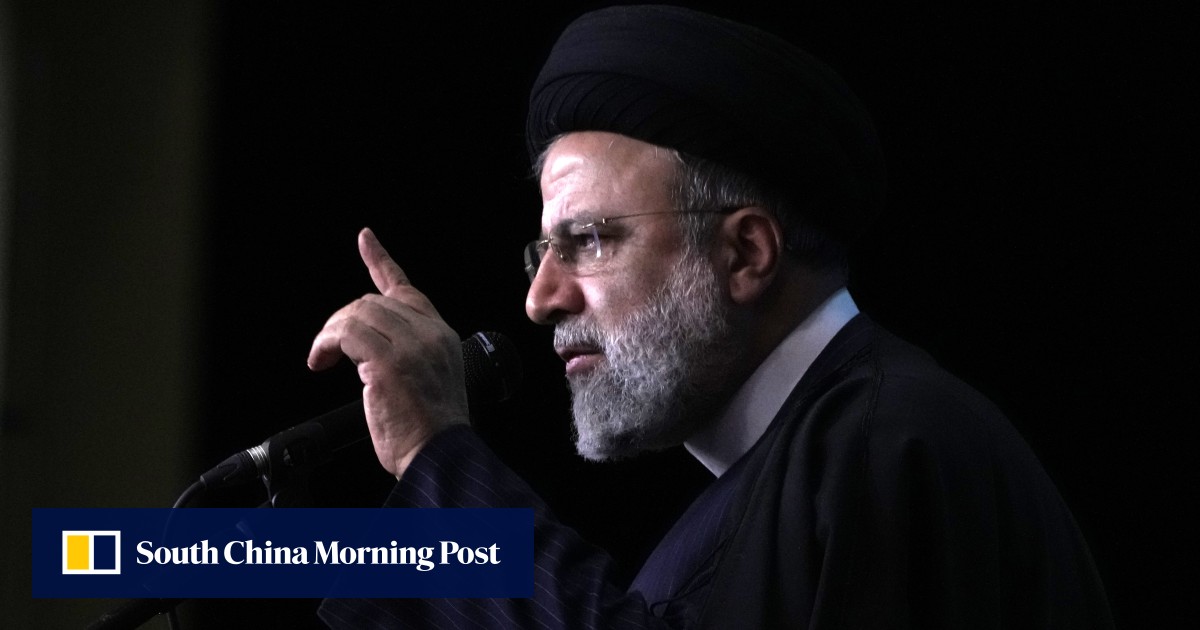The Complicated Legacy of Ebrahim Raisi
From Prosecutor to President: A Hardline Leader’s Rise to Power
Crackdowns, Controversies, and Challenges
Ebrahim Raisi, a key figure in Iran’s theocracy, passed away at the age of 63. His journey from a hardline prosecutor to an uncompromising president was marked by a crackdown on protests and a tough stance in nuclear negotiations with world powers. Raisi’s sudden death in a helicopter crash while returning from a border visit underscored the unpredictability of his tenure.
When elected president in a closely controlled vote in 2021, Raisi faced a unique opportunity in the nuclear talks with the U.S. His hardline approach aimed at winning relief from sanctions while maintaining Iran’s technological advancements. The chaotic situation in neighboring Afghanistan and policy shifts in Washington added to the complexities of his presidency.
Raisi’s domestic policies were equally hardline, with a strict enforcement of laws restricting women’s dress and behavior leading to tragic consequences. His order for tighter enforcement of the “hijab and chastity law” resulted in nationwide protests and a brutal crackdown by security forces. This marked a challenging period for Iran’s clerical rulers and highlighted the growing discontent among the populace.
The Path to Supreme Leadership
Raisi’s close ties to Supreme Leader Ayatollah Ali Khamenei played a significant role in shaping his political career. Despite being a political novice, Raisi had the full backing of Khamenei for his stance on nuclear negotiations and security measures. His ultimate goal of succeeding Khamenei as Supreme Leader seemed within reach as he consolidated power among hardliners in Iran.
However, Raisi’s popularity at home faced challenges due to widespread protests and economic struggles exacerbated by Western sanctions. His controversial past as a prosecutor overseeing the execution of political prisoners in 1988 also raised concerns about his human rights record. Despite his claims of defending human rights, criticisms from advocacy groups like the Center for Human Rights in Iran painted a different picture of his leadership.
The Global Implications of Raisi’s Legacy
Internationally, Raisi’s hardline stance posed challenges in diplomatic relations, particularly in the nuclear negotiations with the U.S. His deep suspicion of the West and support for anti-Western policies, including backing proxy forces in the Middle East, further strained Iran’s relations with Western nations. The failed attempt to retaliate against Israel following a missile attack highlighted the volatile nature of Iran’s foreign policy under Raisi.
The U.S.’s imposition of sanctions on Raisi for human rights violations added another layer of complexity to Iran’s international standing. His loss in the 2017 presidential election due to revelations of his role in the 1988 executions reflected the enduring impact of his past actions on his political career.
In Conclusion
Ebrahim Raisi’s tenure as president of Iran was marked by controversies, crackdowns, and a quest for power. His hardline approach to domestic and international issues underscored the challenges of navigating Iran’s complex political landscape. The implications of his legacy, both at home and abroad, will continue to shape Iran’s future trajectory and its relations with the global community.
How Raisi’s Legacy Will Affect Me
As a global citizen, the implications of Ebrahim Raisi’s presidency in Iran may impact me indirectly through changes in international relations, particularly in the context of nuclear negotiations and regional conflicts. His hardline stance and suspicion of the West could lead to further tensions and instability in the region, potentially affecting diplomatic efforts and economic relations.
How Raisi’s Legacy Will Affect the World
Ebrahim Raisi’s legacy in Iran will have far-reaching implications for the world, especially in terms of regional stability, nuclear proliferation, and human rights issues. His hardline policies and confrontational approach to international relations could impact global security and political dynamics, potentially reshaping alliances and conflicts in the Middle East and beyond.





